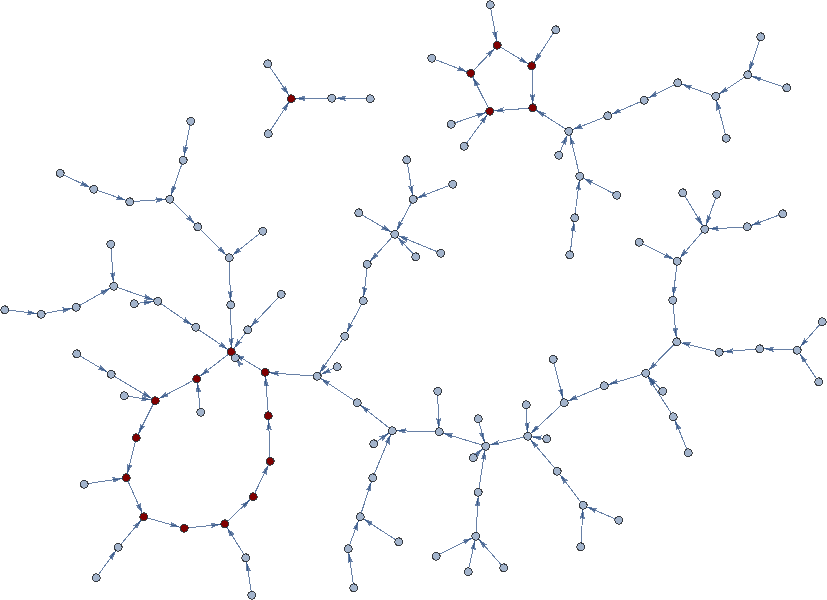Getting curious about SHA-256 cycles (what happens if you hash a value repeatedly), I came across this question:
The first answer suggests that using a 7-bit hash, it's possible to find a value that hashes to itself. See the red dot which isn't part of a loop but on its own:
I assume from the diagram, this means if I apply the 7-bit hashing function to this value, the output matches the input. So my question is if such values are possible in SHA-256, and if anyone knows what value(s) hash to themselves or has ever found one of those values.

